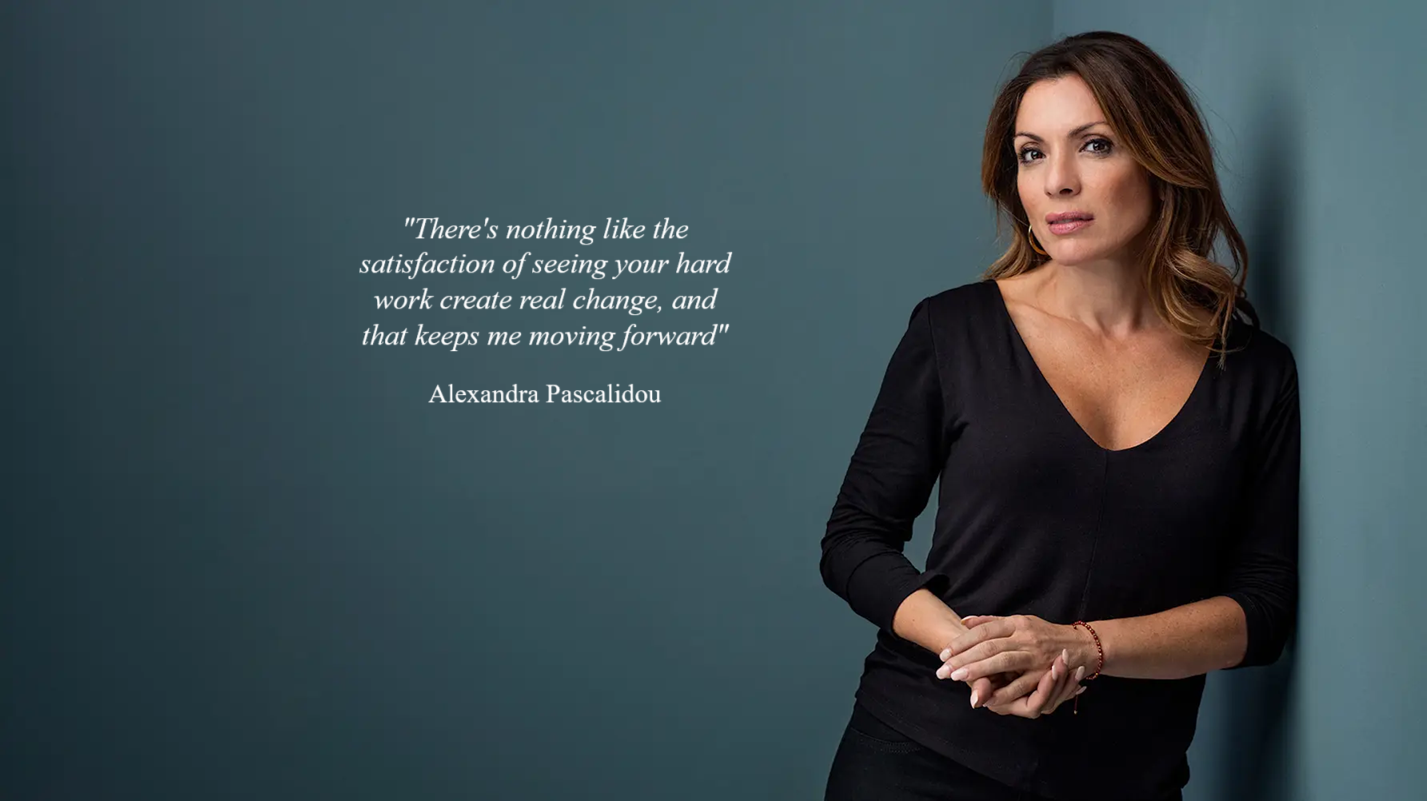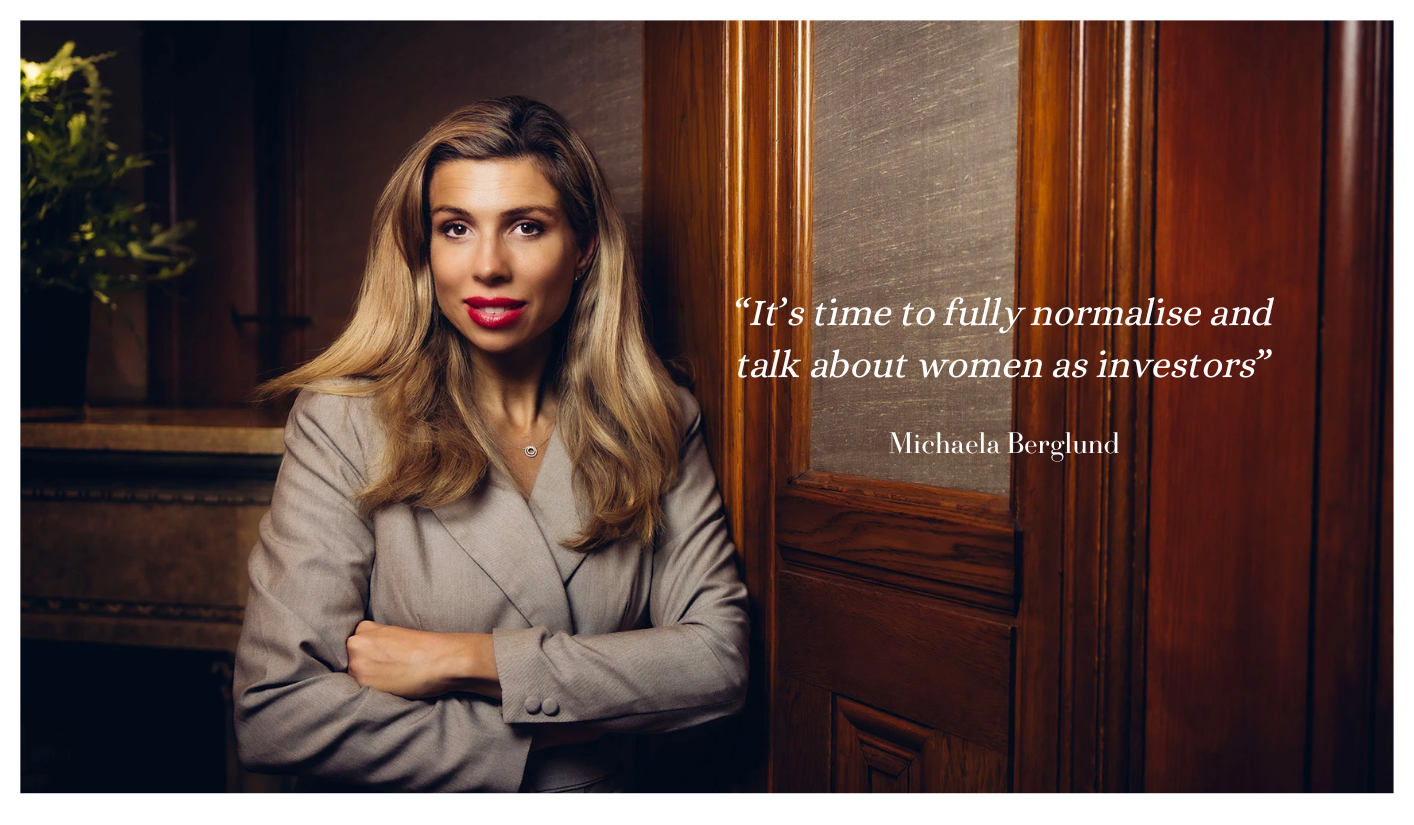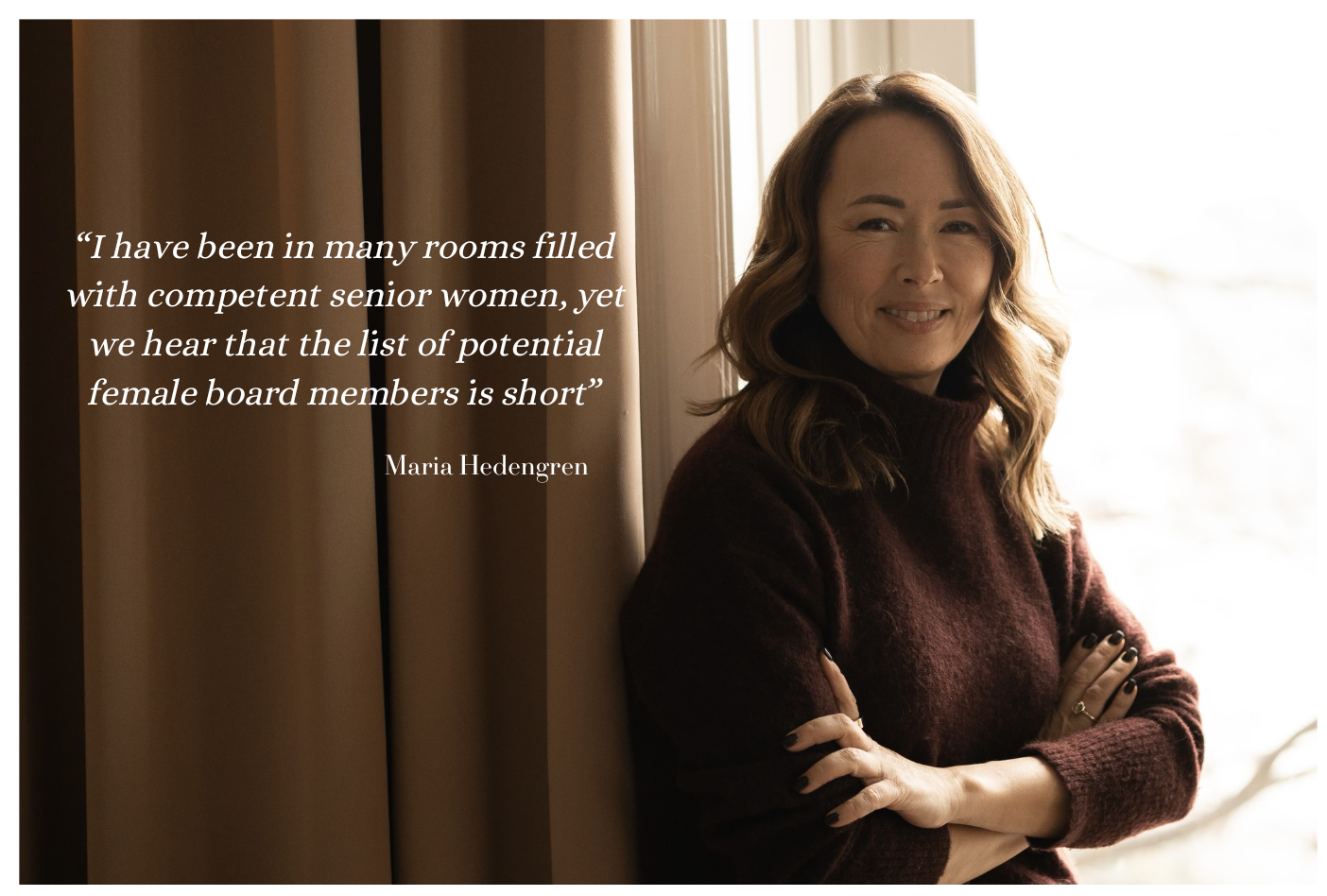
We had a chat with award-winning journalist, author, media personality, and human rights champion Alexandra Pascalidou to hear her insights on succeeding as a woman in the often challenging business world and her thoughts on empowerment, navigating gender biases and the role of fashion
Alexandra, what have been the key drivers of your own success?
My journey has been fueled by resilience, curiosity, and a deep desire to challenge the norms that try to keep us boxed in. Growing up in a poor and challenging environment, in the most marginalised and stigmatised suburb in Sweden, and I quickly learned that the world doesn't always hand you opportunities—you have to create them yourself. That mindset has been key. Whether it's journalism, TV, theater, or advocacy, my passion for storytelling, combined with my commitment to equality and human rights, has driven me to push boundaries. There's nothing like the satisfaction of seeing your hard work create real change, and that keeps me moving forward.
As an advocate for female empowerment, what does empowerment mean to you and how do you incorporate it in your life?
Empowerment to me is all about self determination and solidarity. It's about having the tools, confidence, and support to make your own decisions and chart your own path. In my life, empowerment is a daily practice. I've faced barriers, like many women, but I've turned those challenges into fuel for my advocacy. Whether in my writing, speeches, media, I make sure my message encourages women to speak up, step out, and claim their rightful place in society. And let's not forget to lift others as we rise—that's a key part of it too.
You’ve worked extensively for gender equality and have observed how men often receive more space in meetings, better evaluations and greater recognition. What practical strategies can women use to navigate these challenges?
It's so crucial to own your space! One thing I always remind myself and other women I mentor is to speak up, not just in meetings, but in ways that command attention. You don't need to shout; you just need to be clear, confident, and concise. Don't shy away from taking the lead, asking questions, or even taking a seat at the table where you can make your voice heard.
And when you get that recognition? Own it. Don't let anyone dim your shine.
Is there any particular book or podcast that has inspired you that you would like to recommend?
There are so many and I'd like to mention my own books - especially my first book, my autobiography "Bortom mammas gata" that is an empowering journey on how to tackle obstacles and building resilience to achieve your goals. I also recently started my Alexandras Talkshow (links below) where I interview inspiring personalities about their achievements and ambitions, their backlashes and bravery.
How do you think about what you wear for an important day to ensure that you feel your best?
What I wear is a reflection of how I want to feel. It's not just about the clothes; it's about the energy I bring into a room. When I'm about to take the stage or meet someone important, I choose outfits that make me feel strong, confident, and comfortable—something that feels me and highlights my personality. I like to incorporate pieces that carry meaning for me. When I feel good in what I'm wearing, my energy naturally shifts to a place of confidence and authority.
What is your favorite Capsuless piece and when do you wear it?
I chose the grey Empower dress that makes me feel ready to take on the world, whether I'm moderating a panel or heading into an important business meeting. It's one of those pieces in my wardrobe that gives me the perfect combination of empowerment and elegance.
Want more of this brilliant and inspiring mind? Go check out Alexandra’s mentioned book, her talk show and her upcoming play “Papporna” premiering on Dramaten on the 17th of April! Links below:
Book, Bortom mammas gata
Talk Show
Papporna on Dramaten

We dropped by the Feminvest office and met their inspiring and empowering founder and CEO, Michaela Berglund, to get her view on women’s financial position, investments and entrepreneurship as well as how we together can work to close the female wealth gap that we see in today’s capital markets
Michaela, you are a strong voice for women’s financial empowerment through Feminvest. What made you start this journey?
I started to invest in the stock market when I was 19 years old and I quickly realised that I had no one to really discuss the financial market with, why I initially looked for a forum to share insights and have discussions. I later discovered that only a small portion of investor capital goes to female-founded businesses, and that women tend to own significantly less in the companies they work for. A turning point for me was learning that in many IPOs, women working at the company only own about 1% of the shares - giving almost all the upside to the men while working just as hard to make the companies successful. As such, I founded Feminvest to be able to raise these questions, empower women in business and to educate women to improve their financial position.
You’ve worked extensively for gender equality and often highlight the gap in ownership between men and women. What do you think needs to change to close this gap and what advice would you give to women who want to improve their wealth?
It’s time to fully normalise and talk about women as investors, and make it easier and more accessible to invest, also in private companies. At Feminvest, that is something we work with every day. Two of my best pieces of advice are to start talking about investing and savings in your friend groups and set financial goals and work for them! Women tend to be excellent at setting goals, but financial goals are often left out, when it should rather be the opposite.
Through your work at Feminvest, you’ve met countless women building businesses —what do you think is the most important shift needed for more women to confidently be successful within entrepreneurship?
First, I want to say that women are already doing a great job—about one in three new companies is founded by a woman, which is a strong start. Women are also very good at building their own networks and help each other – but to accelerate change, we need to also include men in our conversations. Diplomacy and bridge-building are essential. Since power and capital often lie in male-dominated spaces, we must be able to speak the same language and bring them into our efforts for real progress.
You have recently launched your fund dedicated to investing in female-founded businesses. Why do you think only a fraction of the financial capital today goes to female entrepreneurs and do you have any advice for women trying to attract investors?
As a woman - learn the game, build relationships and start early! Often, women don’t present the information investors are used to seeing, which leads to fewer deals. We must educate female founders to create strong pitch decks and investor materials, while also encouraging investors to broaden their perspectives. If you’re thinking of raising capital, start building relationships long before you need funding. Networking is everything—attend events, talk to people, and build your circle. At Feminvest, we’ve helped many
women raise capital through our own network and community over the years.
You’ve also founded Run for Women’s Ownership, an initiative that shines a light on the female wealth gap and entrepreneurship. Can you tell us a little bit more about this and how can others join or support it?
On September 3rd, we’re hosting a run at scenic Djurgården in Stockholm to raise awareness around female ownership and entrepreneurship. Everyone is welcome and the atmosphere will be filled with energy, knowledge-sharing and giveaways. You can choose to run or walk 5.9 km. Last year, we had 400 participants, and this year we hope to grow even more – we hope to see you there!
Is there any particular book, podcast or similar that has inspired you that you would like to recommend?
Lean in by Sheryl Sandberg is a classic, but I also found it interesting to read Elon Musk’s book that was released when he was on top. The latter gave me perspective on how things can change.
How do you think about what you wear for an important meeting, event, or a day when you’ll be on stage to ensure that you feel your best?
I always go for something comfortable that still looks professional and stylish. I also love wearing female-founded brands as it makes me feel empowered and proud to support other women. Another key thing is to not stress while getting ready if possible.
What is your favorite Capsuless piece and when do you see yourself wearing it?
The Limitless Skirt is a favorite of mine. It checks all the boxes: comfortable, stylish, professional—and created by a woman-led brand. I wear it on a variety of occasions, from a quiet day in the office to a day filled with meetings and errands.
Want more of Michaela and learn more about Feminvest? We recommend checking out their website with information on Feminvest memberships and Run for Women’s Ownership, see links below!




